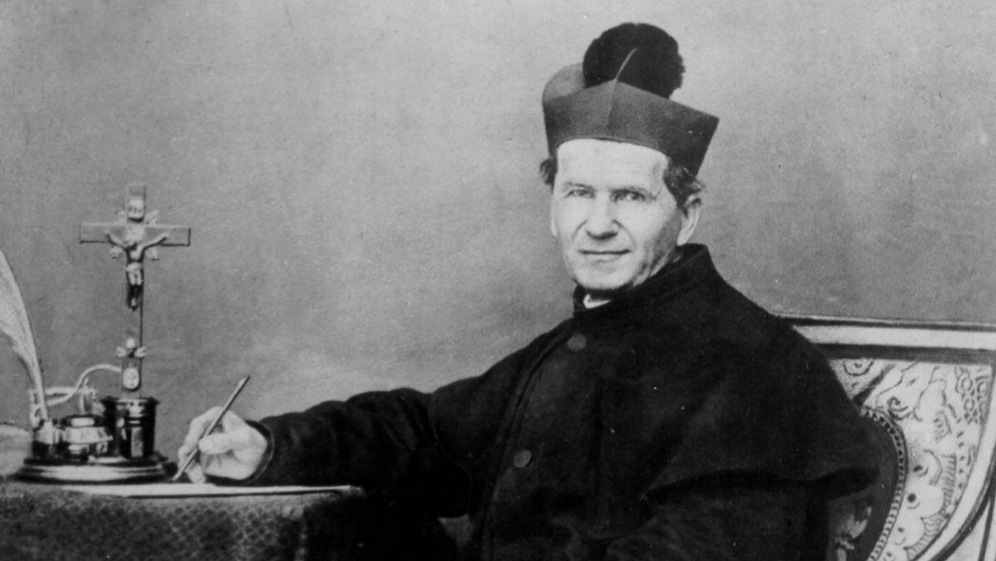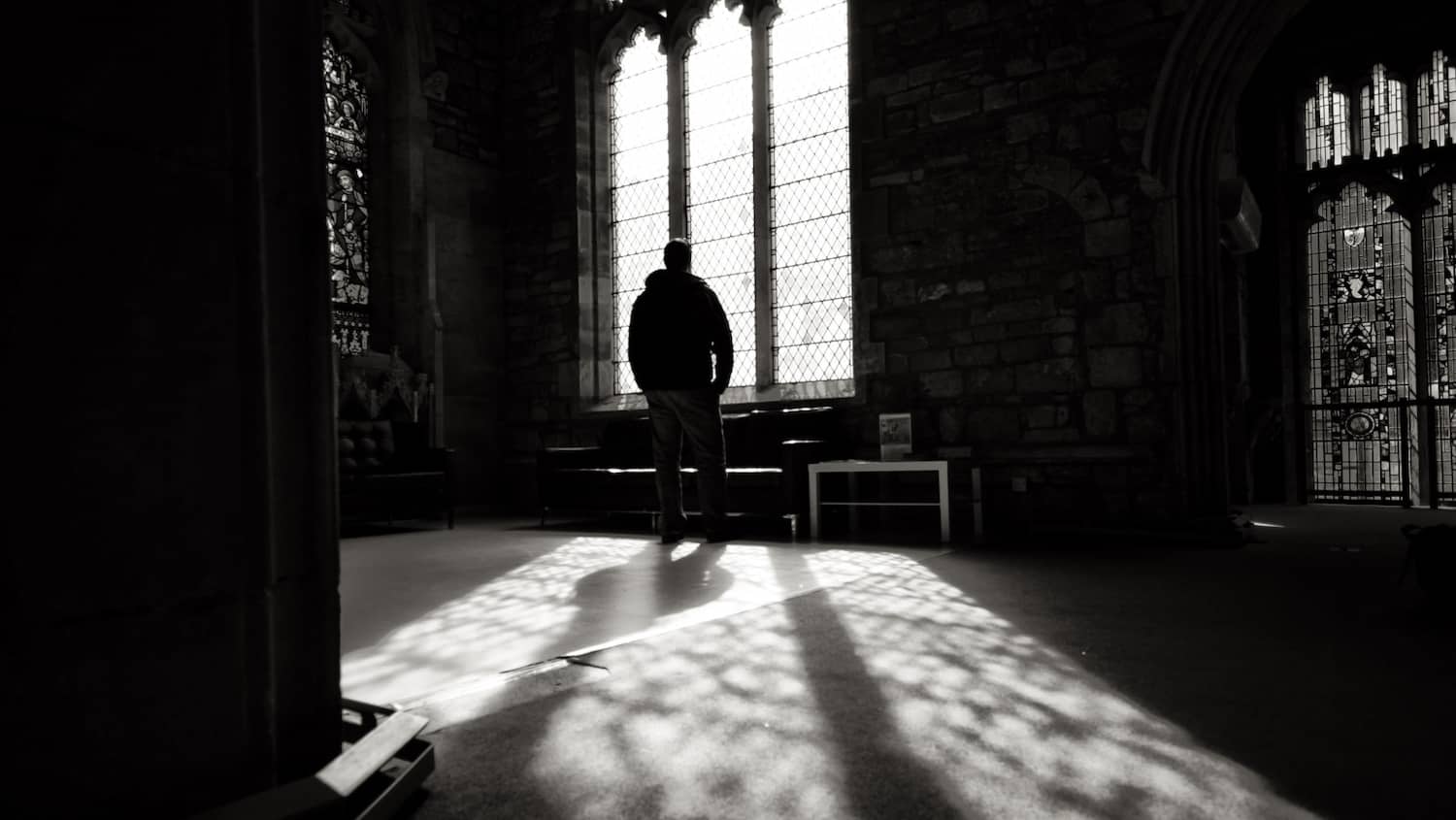One of the pivotal aspects of spiritual life is spiritual warfare. There is no concrete spiritual progress without battling for what is good and holy.
Pope Francis brought this reality to the fore so beautifully when, in his Angelus address of September 27, 2020, he said: But conversion, changing the heart, is a process, a process that purifies us from moral encrustations. And at times it is a painful process, because there is no path of holiness without some sacrifice and without a spiritual battle. Battling for good; battling so as not to fall into temptation; doing for our part what we can, to arrive at living in the peace and joy of the Beatitudes. Today’s Gospel passage calls into question the way of living a Christian life, which is not made up of dreams and beautiful aspirations, but of concrete commitments, in order to always open ourselves to God’s will and to love for our brothers and sisters. But this, even the smallest concrete commitment, cannot be made without grace. Conversion is a grace we must always ask for: “Lord, give me the grace to improve. Give me the grace to be a good Christian.
The big words which Pope Francis is using like, conversion, process, purification, pain, moral encrustations and temptation, show the reality of the battle and the need to concretize our conversion in the little concrete things of everyday life. With our own will alone we cannot go that far. Life teaches us that quite often. However, and as the Holy Father is telling us in his angelus teaching, with God’s grace we can sail in God’s holiness. Provided, of course, that we ask for this grace daily, resolutely and with our utmost humility.
From their life experiences saints know perfectly well that to live the Christian life well, it entails a harsh and lifelong spiritual battle. That is why their witness and teaching is so important for us today. Their life story talks volumes to us as to how we let God’s grace, slowly slowly even if, most of the time, painfully, liberate us from these spiritually deadly encrustations which suffocate our spiritual progress. Hence, giving heed to what the saints want to tell us is surely a big help and a blessing for us to move on in the right direction.
Spiritual combat means deceiving the deceiver, the devil. St John Bosco teaches us: … do you want to outwit the devil? Never let him catch you idle. Work, study, pray, and you will be surely overcome your spiritual enemy. In his God-given wit Don Bosco is reminding us of another teaching, this time by St Jerome, when he said: Keep doing some kind of work, that the devil may always find you employed.
Spiritual combat means employing self-control in everything we engage in. St Mark the Ascetic advises us: Those engaged in spiritual warfare practice self-control in everything, and do not desist until the Lord destroys all “seed from Babylon (Jer. 27:16. LXX). In front of such a colossal challenge for us we may tend to be disheartened. But, as St Catherine of Siena rightly tells us, in this ferocious battle we are not alone. There is Christ who is on our side! That is why she wisely reminds us: And of what should we be afraid? Our captain on this battlefield is Christ Jesus. We have discovered what we have to do. Christ has bound our enemies for us and weakened them that they cannot overcome us unless we so choose to let them. So we must fight courageously and mark ourselves with the sign of the most Holy Cross.
Together with Christ, our Captain, in our spiritual battle there are also the saints who are interceding for us in order that, one day, we too shall be with them in the Heavenly glory. St Henry Suso says: Remember that you will derive strength by reflecting that the saints yearn for you to join their ranks; desire to see you fight bravely, and that you behave like true knights in your encounters with the same adversities which they had to conquer, and that breathtaking joy is theirs and your eternal reward for having endured a few years of temporal pain. Every drop of earthly bitterness will be changed into an ocean of heavenly sweetness. This beautiful reflection by Suso, especially when he mentions that it is important that one fights like a knight, takes me directly to what Jesus himself said to St Faustina in her Diary entry 1760: Always fight with the deep conviction that I am with you. Do not be guided by feeling, because it is not always under your control; but all merit lies in the will... I will not delude you with prospects of peace and consolations; on the contrary, prepare for great battles. Know that you are now on a great stage where all heaven and earth are watching you. Fight like a knight, so that I can reward you. Do not be unduly fearful, because you are not alone.
Spiritual combat implies saying no to sin and saying yes to virtues by practicing them. Together with this dynamic there is another important aspect which never should be neglected: keeping vigilance lest one falls into sin. St Maximos the Confessor counsels us: “Shun evil and do good” (Ps. 34:14), that is to say, fight the enemy in order to diminish the passions, and then be vigilant lest they increase once more. Again, fight to acquire the virtues and then be vigilant in order to keep them. This is the meaning of “cultivating” and ‘keeping” (cf. Gen. 2:15).
In a piece from St Isaiah the Solitary, one can really appreciate the extent of vigilance so as not to hamper one’s spiritual journey. He says: Our teacher Jesus Christ, out of pity for mankind and knowing the utter mercilessness of the demons, severely commands us: ‘Be ready at every hour, for you do not know when the thief will come; do not let him come and find you asleep’ (cf. Matt. 24:42-43). He also says: ‘Take heed, lest your hearts be overwhelmed with debauchery and drunkenness and the cares of this life, and the hour come upon you unawares’ (cf. Luke 21:34). Stand guard, then, over your heart and keep a watch on your senses; and if the remembrance of God dwells peaceably within you, you will catch the thieves when they try to deprive you of it. When a man has an exact knowledge about the nature of thoughts, he recognizes those which are about to enter and defile him, troubling the intellect with distractions and making it lazy. Those who recognize these evil thoughts for what they are remain undisturbed and continue in prayer to God.’
So far an essential remedy to combat spiritually is, certainly, prayer. St Agathon harps on this foundational attitude when he tells us: Forgive me, but I think there is no labour greater than that of prayer to God. For every time a man wants to pray, his enemies, the demons, want to prevent him, for they know that it is only by turning him from prayer that they can hinder his journey. Whatever good work a man undertakes, if he perseveres in it, he will attain rest. But prayer is warfare to the last breath.
In spite of the importance of prayer one also needs to value the role of spiritual direction in such a combat. Having the assistance of a spiritual director is truly crucial if one wants to discern the spiritual journey he and she is seriously undertaking. St John Bosco says: What I recommend most earnestly is not to lose heart when you are tempted. Do you wish to succeed? The best way is to reveal the temptations to your spiritual director immediately. The devil loves darkness. He always operates in the dark because he knows that if he is discovered he is beaten.
St Pope John Paul II is on the same trail of St John Bosco when he instructs us: “Spiritual combat” is another element of monastic life which needs to be taught anew and proposed once more to all Christians today. It is a secret and interior art, an invisible struggle in which monks engage every day against the temptations, the evil suggestions that the demon tries to plant in their hearts; it is a combat that becomes crucifixion in the arena of solitude in the quest for the purity of heart that makes it possible to see God (cf. Matthew 5:8) and of the charity that makes it possible to share in the life of God who is love (cf. 1 John 4:16). More than ever in the lives of Christians today, idols are seductive and temptations unrelenting: the art of spiritual combat, the discernment of spirits, the sharing of one’s thoughts with one’s spiritual director, the invocation of the Holy Name of Jesus and of his mercy must once more become a part of the inner life of the disciple of the Lord. This battle is necessary in order not to be distracted or worried (cf. 1 Corinthians 7:32,35), and to live in constant recollection with the Lord.
Our life is precious. We need to live it in the presence of our loving Father who loves us, cares for us and protects us from every evil. As the saints rightly teach us, let us keep connected with his saving paternal presence by prayer; the vivid memory of Christ, Our Mother Mary and the saints who are constantly supporting us; avoiding sin; practicing self-control and humbly welcoming the spiritual companionship of a spiritual director. In that way our spiritual combat becomes a source of salvation and renewal to us as well as to our brothers and sisters too!






